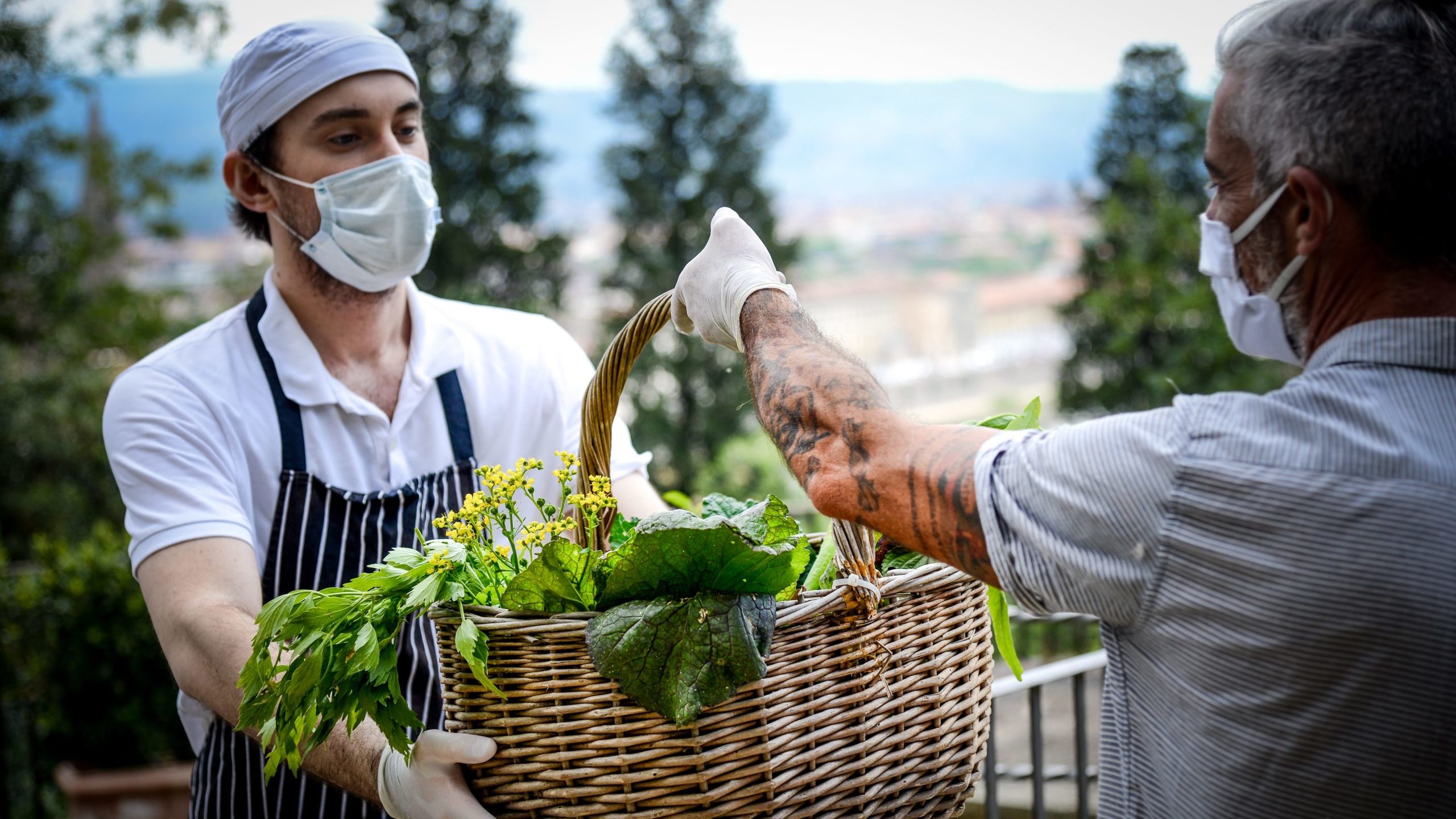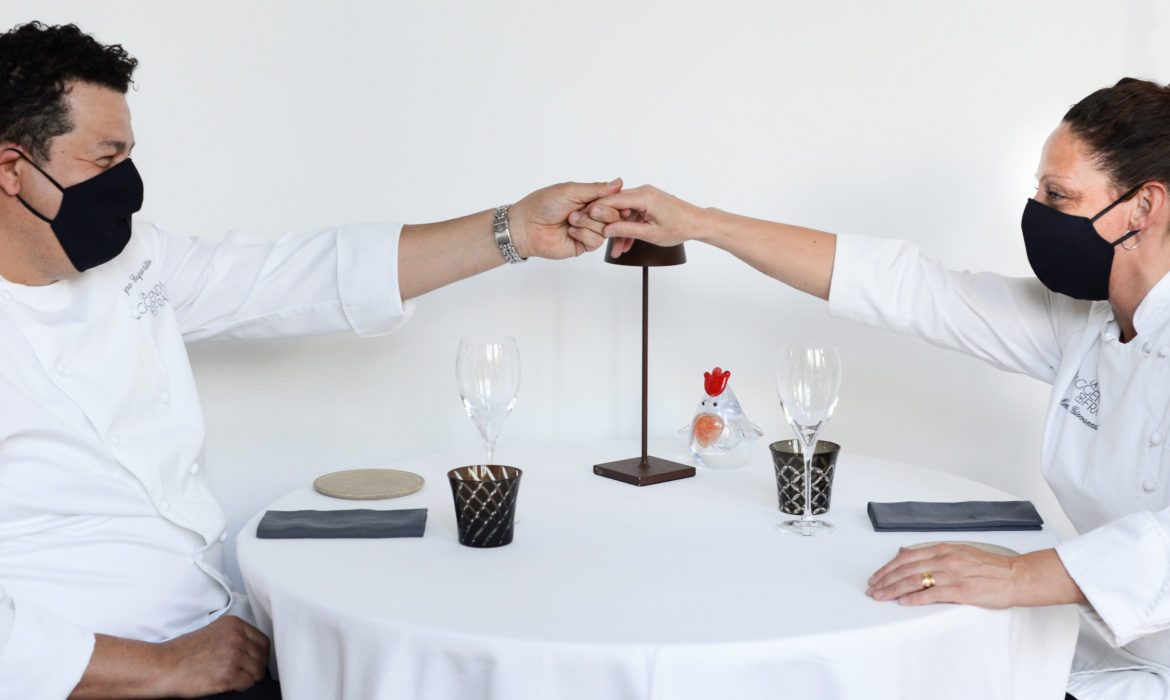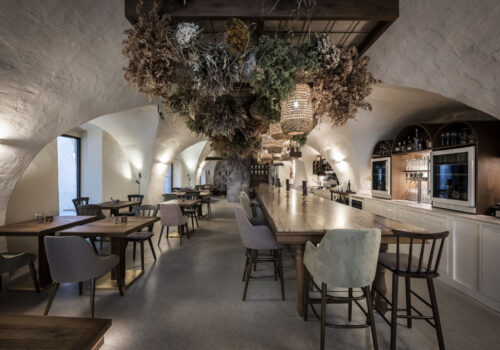Restaurants in the post-pandemic age. Recipes by ‘I Food Designer’
Designing for the food industry means creating products, services and practices that «give form» to a consumer acknowledging its ritual nature and the functional as well as symbolic factors involved. This is very clear to Food Designer, the group-brand that since 2006 gathers specialists of the caliber of Paolo Barichella, Mauro Olivieri, Ilaria Legato, Marco Pietrosante and Francesco Subioli. Their programme? To put out a series of good practices for this delicate post-lockdown period, that will help us rediscover the authentic pleasure of sharing the rituals of food, but with all the necessary precautions, safely and serenely.
The relationship between customer and restaurateur, in order to function, must take into consideration all the elements that enrich the experience of sharing food in public with its wealth of social, cultural and geographic connotations. At its basis, like any relationship, there is mutual trust: upon entering a restaurant, a user must take for granted that he is in a place of integrity – for which the restaurant owner is responsible – which he can enjoy peacefully and serenely, committing himself to respect this same condition with regards to the host and the other guests.
One example is the project to reopen ‘Leggenda dei Frati’ in Florence, the Michelin-star restaurant headed by chef Filippo Saporito and Ombretta Giovannini. The work of I Food Designer, assisted by Ilaria Legato, made it possible to design and rethink the attentions and activities that take place while serving, like a sort of theatre script: the actions they prescribe make it possible to guarantee the appropriate physical distancing required by the emergency on the one hand, and on the other to reduce the “psychological” distance between the customer and the dining room staff.
The point is therefore to redesign and celebrate the ritual, reconsidering the interactions that take place between all the actors involved, designing the when and how of interrelations and intervention, factors that are too often taken for granted.
Safety is a priority for the restaurateur today, and this quality must be evident throughout the culinary experience.
The search for suppliers, which has always been one of the key elements in the restaurant format created by Filippo and Ombretta, becomes even more selective: they arrive in specific areas on an exact schedule, with dedicated paths for entry, that never forget to allow for moments of creative exchange and dialogue.
The staff was also consulted in rethinking how to interact with the customers, a fundamental concern in the creation of a virtuous circle that is both convincing and safe. Masks were created ad hoc by the same company that designs and manufactures the restaurant’s uniforms, and by the way also dresses the players of the A.C.Fiorentina football club; the hand sanitizer was created in collaboration with a renowned cosmetics firm, to create a personalized essence. The paper menu, which customers chose from but could be a possible vehicle of infection, was completely rethought: the new solution is to create unique copies, individually autographed by the chef, that the customer can take home as a souvenir.

© Paolo Matteoni Ph.
The customer becomes an active part in this new ritual, experiencing the space with great tranquility. The behavior of the dining room staff is natural and friendly, to build an experience that is engaging and sensory from every point of view, eliminating any sense of uneasiness or possible prejudices on the part of the diners.
The communication regarding the cleanliness and sanitizing of the spaces, narrated with the use of innovative supports, thus appears to be indispensable in post-Covid restaurant service, for the creation of a reconsidered and more conscious relationship with the customer, that remembers the fundamental need for “social interaction” that is inherent in sharing a meal.
© ALL RIGHTS RESERVED
translation by Olga Barmine






